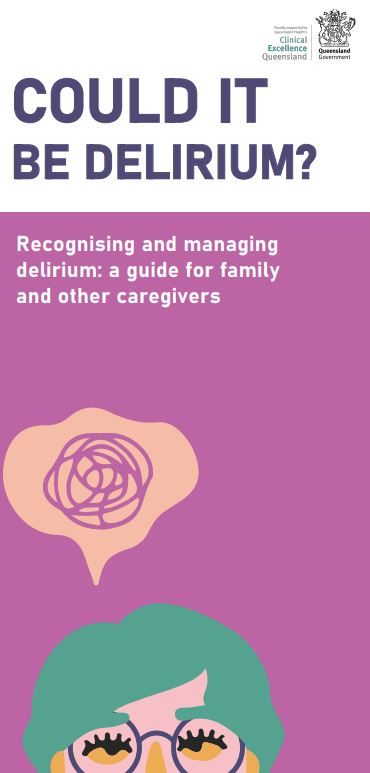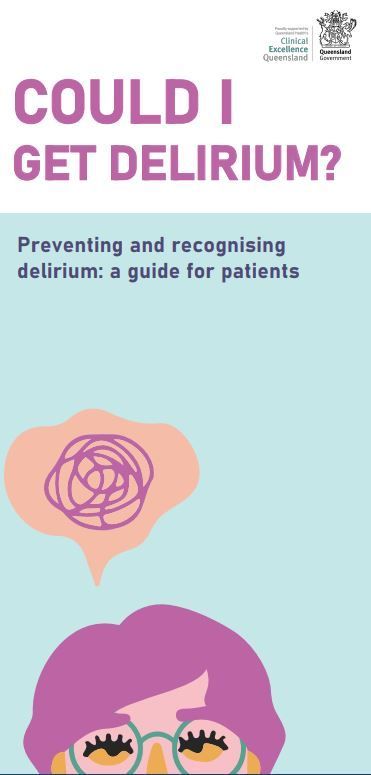Guides for Patients, Families and Carers
Delirium is a very common and distressing change to a person’s mental state that can be related to the effects of illness, injury, having surgery, medicines, or withdrawal from drugs or alcohol. Delirium can make it hard for people to care for themselves, make decisions, communicate their needs and manage their emotions. They can seem confused, upset, or sleepy and may see or hear things that are not there. Delirium develops quickly over hours or days and can last days or weeks. This makes it different from dementia which occurs more gradually and for a longer time. Delirium is still poorly understood, recognised and managed.
These brochures have been developed to help people understand more about delirium, recognise the signs, and feel confident talking to their healthcare providers. They can help family carers understand they have an important role communicating what they observe to the healthcare providers. They know when their loved one is not their normal self and can help by raising the alarm. Their contribution to the physical and emotional care of the person with delirium can also make a big difference to delirium prevention and recovery.
The brochures were developed for use in community and healthcare settings in a collaborative project between the Royal Brisbane and Women’s Hospital Internal Medicine Research Unit, Eat Walk Engage program Consumer Response Team, QUT Design Labs and the Australasian Delirium Association, supported by the Royal Brisbane and Women’s Hospital Foundation. The brochures are free to download and use with appropriate acknowledgement of the developers.


